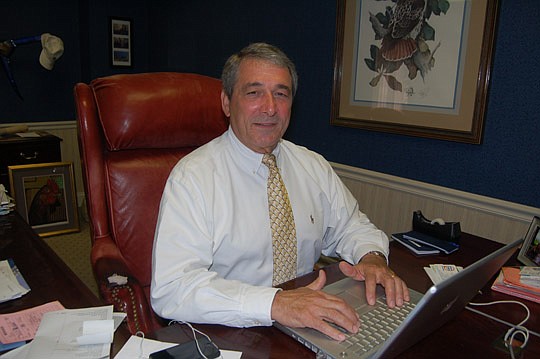
Last Tuesday would have been the 84th birthday of Dr. Martin Luther King Jr., an American icon who was gunned down at a Memphis hotel in 1968. He has been gone from us for 45 years.
I can't help but wonder what all might have been accomplished if he had lived. Chances are he would still be a strong voice for justice, reason and peace.
As some of us might remember, when King was killed the South and much of the nation were in turmoil. Tremendous societal change was afoot and many people were afraid.
People of all races also were angry.
With his courage, his words and the way he lived, King seared a different language into America. People began to question what they thought and even who they were.
When King died, I was only 15, a reasonably carefree youth who attended a private school and loved to spend my days as a river rat on the St. Johns. My sisters and I grew up with parents who taught us values and the importance of being good neighbors and courteous and thoughtful to others no matter who they were.
There was never any prejudice spoken or unspoken in our home. But, like in many families, I think there was silence. We've come to learn even something as innocent as silence can bear a heavy burden.
King knew this when he said, "Our lives begin to end the day we become silent about things that matter."
As I thought about King last week on his birthday, I reflected on some of the incredible words he spoke and wrote. So much attention is rightly focused on his "I Have a Dream" speech, but he said so much more that continues to ring with relevance today.
"If you can't fly then run, if you can't run then walk, if you can't walk then crawl, but whatever you do you have to keep moving forward," is one I especially like.
"Keep moving forward." It applies to us as individuals in our everyday lives and collectively as a community.
It's a mindset. It's an attitude.
It's not about instant gratitude, but more about continuous improvement and making sustained progress.
There's no question that King wanted race relations and changes in how we treat each other to progress at the speed of sound. But, he knew it was not a sprint. Sometimes we would walk, even crawl.
All the while, though, we would move forward.
If King were here in Jacksonville now, I wonder what he would say about how we've moved forward in the past 45 years.
Surely he'd be pleased that in 1995 we elected an African-American sheriff and in 2011 we elected Alvin Brown as our mayor.
That's important, but improving race relations transcends who we elect.
Many people in Jacksonville have worked diligently over the past four decades to create a community where race is an asset to our quality of life. We respect our differences and diversity, celebrate what we have in common and grasp our opportunities — all for one and one for all.
Circuit Judge Brian Davis, an African-American, has again been nominated by President Barack Obama to a federal court judgeship. His confirmation has been held up in the U.S. Senate because of some warped notion that he made race-sensitive remarks many years ago.
Frankly, I find that shameful.
The truth is that Davis has been a constant, wisdom-filled role model for treating others with dignity and demonstrating what we should be as a community. He's been in the forefront of improving relations. King would not be pleased with the treatment Davis has received.
For me, the promise for the future is not just about the color of the people we elect. It is more about seeing children of all races playing with each other without any thought of skin color. It's something that will allow them to work together as adults and live as neighbors who support and care for each other.
I think that too was what was important to King.
"I have a dream that one day little black boys and girls will be holding hands with little white boys and girls," he said in his "I Have a Dream" speech.
I see it throughout Jacksonville — the youngest showing us how to move forward.
"I have a dream that my four little children will one day live in a nation where they will not be judged by the color of their skin but by the content of their character," he also said in the speech.
More and more, we've bypassed the stereotypes of race to view others, as King dreamed, based on who they are on the inside and what they accomplish — and not on skin color.
How have we done? What would King say?
I believe the answer is he would say that we've done OK, but I also imagine he would say that OK is not enough.
The good news is many of us would agree with that assessment. We know we have to keep moving forward because, despite progress, we still have a long way to go.
Most of all, King would tell us not to sit by and be silent.
(904) 356-2466